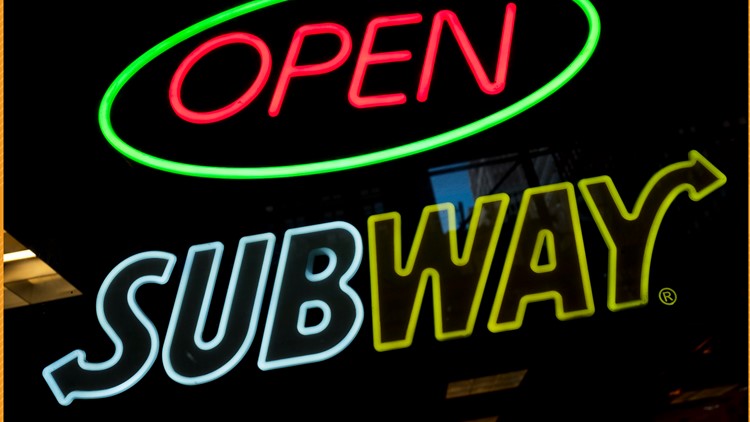Editor's note: The related video above was published Oct. 1.
Subway is pushing back against a lawsuit that claims the fast food chain doesn't use real tuna in its sandwiches and wraps.
The lawsuit, from two California residents, claims Subway's tuna is "made from a mixture of various concoctions that do not constitute tuna, yet have been blended together." It also accuses the chain of fraud and misrepresentation, saying that calling it "tuna salad" constitutes false advertising.
Subway denies this, and in response said the tuna it serves is "100% Wild-Caught Tuna."
"There simply is no truth to the allegations in the complaint that was filed in California," a Subway spokesperson said in a statement. "The taste and quality of our tuna make it one of Subway's most popular products and these baseless accusations threaten to damage our franchisees, small business owners who work tirelessly to uphold the high standards that Subway sets for all of its products, including its tuna."
The lawsuit cited "independent testing" and claimed the products "entirely lack any trace of tuna as a component." However, the suit didn't explain what that testing entailed or ingredients they allegedly found.
Plaintiffs Karen Dhanowa and Nilima Amin, who live in the San Francisco Bay Area, claim in their lawsuit filed last week in U.S. District Court for the Northern District of California that Subway has been trying to “capitalize on the premium price consumers are willing to pay for tuna,” the East Bay Times reported Thursday.
Dhanowa and Amin had samples from several California restaurants analyzed and the filling was determined to be “a mixture of various concoctions that do not constitute tuna, yet have been blended together by defendants to imitate the appearance of tuna,” according to the complaint. However, the complaint doesn't say precisely what the tests discovered in lieu of tuna.
Shalini Dogra, an attorney representing the Alameda County residents who brought the suit, told The Washington Post they "found that the ingredients were not tuna and not fish." However, Dogra would not tell The Post what the lab had supposedly identified instead of tuna.
The plaintiffs are represented by Lanier Law Firm of Houston and Dogra of the Dogra Law Group of Santa Monica. The lawyers didn't make their clients available for comment to The Associated Press.
According to the suit, Dhanowa and Amin's attorneys are hoping to get the claim certified as a class action, which would allow other customers who purchased Subway’s tuna sandwiches and wraps after Jan. 21, 2017, in California to join the case.
Subway said the lawsuit seems to be "part of a trend in which the named plaintiffs’ attorneys have been targeting the food industry in an effort to make a name for themselves."
The company said it plans to fight the claims, which a spokesperson described as "frivolous" and "being pursued without adequate investigation."
This isn't the first time that a lawsuit raised questions about Subway's food. Last year, Ireland’s Supreme Court ruled that bread sold by the fast food chain contained so much sugar it could not be legally defined as bread.


AP contributed.


